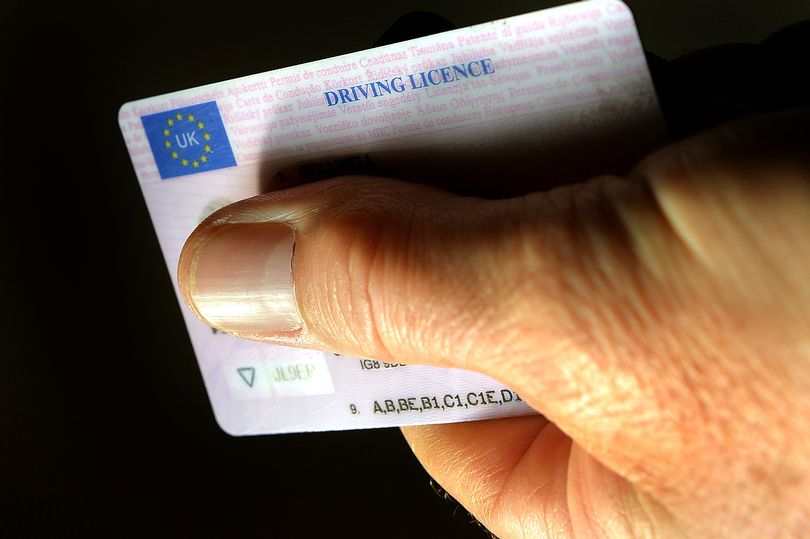
FULL LIST OF A-Z MEDICAL CONDITIONS DRIVERS MUST REPORT TO THE DVLA
Drivers could risk voiding their insurance policies and their licences if they don't tell the Driver and Vehicle Licensing Agency (DVLA) if they suffer from a certain medical condition.
If you don't inform them it means if you are pulled over by the police, or involved in an accident, you could end up a criminal prosecution or footing a hefty bill.
There are a number of lesser-known conditions, as well as the more obvious ones, that you have to tell the DVLA about. In fact, there are more than a hundred conditions that need to be considered by them. And, if you don't inform them and are caught driving you could face a fine of up to £1,000, reports Chronicle Live.
Read More: Warning for 850,000 people in UK who could miss out on £150 payment into bank account
While some conditions will mean that you will have to give up your condition altogether, others will just mean that you have a limitation on your licence. For example, people with diabetes have to apply for a new licence every three years.
Here is a breakdown of all the conditions you must tell the DVLA about.
Full A-Z list of conditions you must tell the DVLA about
- Absence seizures
- Acoustic neuroma
- Agoraphobia
- Alcohol problems
- Alzheimer’s disease
- Amyotrophic Lateral Sclerosis (ALS)
- Amaurosis fugax
- Amputations
- Angiomas or cavernomas
- Ankylosing spondylitis
- Anxiety
- Aortic aneurysm
- Arachnoid cyst
- Arrhythmia
- Arteriovenous malformation
- Arthritis
- Asperger syndrome
- Ataxia
- ADHD .
- AIDS
- Bipolar disorder (manic depression)
- Blackouts
- Blood clots
- Blood pressure
- Brachial plexus injury
- Brain abscess, cyst or encephalitis
- Brain aneurysm
- Brain haemorrhage
- Traumatic brain injury
- Brain tumour
- Broken limbs
- Brugada syndrome
- Burr hole surgery
- Cancer
- Cataracts
- Cataplexy
- Central venous thrombosis
- Cerebral palsy
- Charcot-Marie-Tooth disease (CMT)
- Cognitive problems
- Congenital heart disease
- Fits, seizures or convulsions
- Déjà vu
- Defibrillators
- Dementia
- Depression
- Diabetes
- Diplopia (double vision)
- Dizziness or vertigo
- Drug use
- Eating disorder
- Empyema (brain)
- Essential tremor
- Eye conditions
- Guillain Barré syndrome
- Head injury
- Heart attacks
- Heart failure
- Heart palpitations
- Hemianopia
- Hodgkin’s lymphoma
- Huntington's disease
- Hydrocephalus
- Hypoglycaemia
- Hypoxic brain damage
- Intracerebral haemorrhage
- Korsakoff's syndrome
- Labyrinthitis
- Learning disabilities
- Lewy body dementia
- Limb disability
- Long QT syndrome
- Lung cancer
- Lymphoma
- Marfan's syndrome
- Medulloblastoma
- Meningioma
- Motor neurone disease
- Muscular dystrophy
- Myasthenia gravis
- Myoclonus
- Narcolepsy
- Night blindness
- Obsessive compulsive disorder
- Excessive sleepiness
- Optic atrophy
- Pacemakers
- Paranoid schizophrenia
- Paraplegia
- Parkinson’s disease
- Peripheral neuropathy
- Personality disorder
- Pituitary tumour
- Post traumatic stress disorder (PTSD)
- Psychosis
- Psychotic depression
- Pulmonary arterial hypertension
- Severe memory problems
- Stroke
- Surgery
- Syncope
- Seizures/epilepsy
- Sleep apnoea
- Schizo-affective disorder
- Schizophrenia
- Scotoma
- Severe communication disorders
- Spinal conditions, injuries or spinal surgery
- Subarachnoid haemorrhage
- Tachycardia
- Tourette's syndrome
- Tunnel vision
- Usher syndrome
- Reduced visual acuity
- Vertigo
- Visual field defect
- VP shunts
- Wolff-Parkinson-White syndrome
You must inform the DVLA about some of these conditions regardless of how they affect you, while others only need to be disclosed if they are affecting your ability to drive. You can check the terms and conditions for each disability on the Government's website.
2023-10-08T07:27:46Z dg43tfdfdgfd